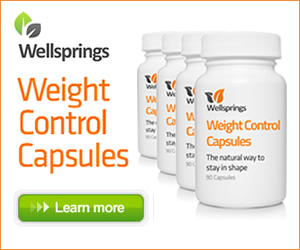Simple Tips To Reduce High Blood Pressure At Menopause
High blood pressure is common during menopause. Naturally reducing it will help with weight loss and lower your risk for diabetes, strokes and heart disease.
High blood pressure, or hypertension, is very common at menopause with an estimated 10 million needing treatment every year.
A frequent question I am asked is whether blood pressure medication can be used alongside bioidentical hormones to help with menopausal symptoms such as hot flushes.
The answer is yes, and there are many also other things that can be done to help blood pressure without medication, and certainly dealing with oestrogen dominance and supplementing with bioidentical natural progesterone is a good place to start.
The five most common factors that cause hypertension
Surprisingly only 5 per cent of hypertension cases are linked to a specific cause, such as kidney disease, while the others are much more everyday.
Lifestyle factors are the first place to look as our increasingly sedentary lifestyles have been directly related to the increase in blood pressure diagnoses.
Number 1 – lack of exercise
Number 2 – smoking
Number 3 – stress
Number 4 – diet high in sugar and saturated fats
Number 5 – obesity
When you look at that list, you can see that you can start to tackle all of them yourself to reduce the risk of hypertension. And it is a real risk as high blood pressure is associated with an increased risk of heart disease and stroke as well as diabetes.
Do you know what your normal blood pressure is, or should be? Many do not, but when they put that cuff on your arm in the surgery what they are measuring is whether your blood pressure is higher than the normal range for your age. That is 120/80 in adults, but what do those figures mean?
The first figure is the systolic pressure (when your heart is contracting) over the diastolic pressure (when your heart relaxes). You will usually be checked at the doctors on a regular basis at menopause and you can also monitor your progress at home with a simple BP machine from a chemist or store.
Anxiety and stress both can increase your blood pressure so it is worth spending a little time monitoring what your own particular stressors are. For some it may be diet, or anxiety or just worrying about having another hot flush so tackling all those factors will help.
How to help high blood pressure
If your blood pressure is above 140/90 over several readings then that is a cause for concern and your doctor will probably prescribe an anti-hypertensive drug. There are a number you may be offered including beta-blockers, which lower your heart rate; vasodilators (such as calcium channel blockers and ACE inhibitors), which widen your blood vessels; and diuretics (water tablets), which reduce the volume of your blood by removing water from your body.
Like many drugs they are not without side effects so tackling the manageable factors such as smoking, exercise and weight loss will go a long way to helping you avoid being on medication.
Hormone balance helps because progesterone opposes excess oestrogen and acts as a diuretic. This is how it encourages weight loss due to the excretion of excess fluid from the body.
Weight loss is effective as just losing half a stone can help bring your reading down to normal in many cases. Losing weight can help prevent insulin resistance and diabetes, both of which are significant risk factors for hypertension.
Exercise plays a key role not just in helping you lose weight, but in improving your overall health and fitness. Whether it is a regular walk, swimming or dancing through the housework does not matter because I f you enjoy it you will maintain it. Even something as simple as standing up while taking a phone call will make more of a difference than you would think.
Dietary changes such as drinking plenty of water and reducing or cutting out salt, sugar (biscuits, cakes and chocolate) and refined carbohydrates (white bread and pasta) will soon be reflected in a healthy loss on the scales. However, punishing yourself is not the answer, slow and gradual changes will be more effective and you are more likely to keep it up.
Essential nutrients are often missing in a poor diet and are vital for blood pressure regulation. What is needed is a regular intake of foods that contain potassium, magnesium, calcium, essential fatty acids and vitamin C. So more fruit, nuts, green vegetables, bananas and sunflower seeds would be good. Also increase the amount of oily fish that you eat as they are rich in omega-3 fatty acids. These have been found to be as effective in lowering blood pressure as beta-blocker drugs. Go for fish oil supplements if you are vegetarian, or don’t eat oily fish regularly.
Useful supplements include garlic which has been found for many years to be helpful. It helps reduce blood pressure by widening the arteries and reduces the stickiness of the blood inside the arteries and that prevents the blood from clotting, which could otherwise cause a heart attack or stroke. Another popular supplement is the Ubiquinol form of Co-enzyme Q10 which is claimed to be as effective as many anti-hypertensive drugs but without the side effects.



















